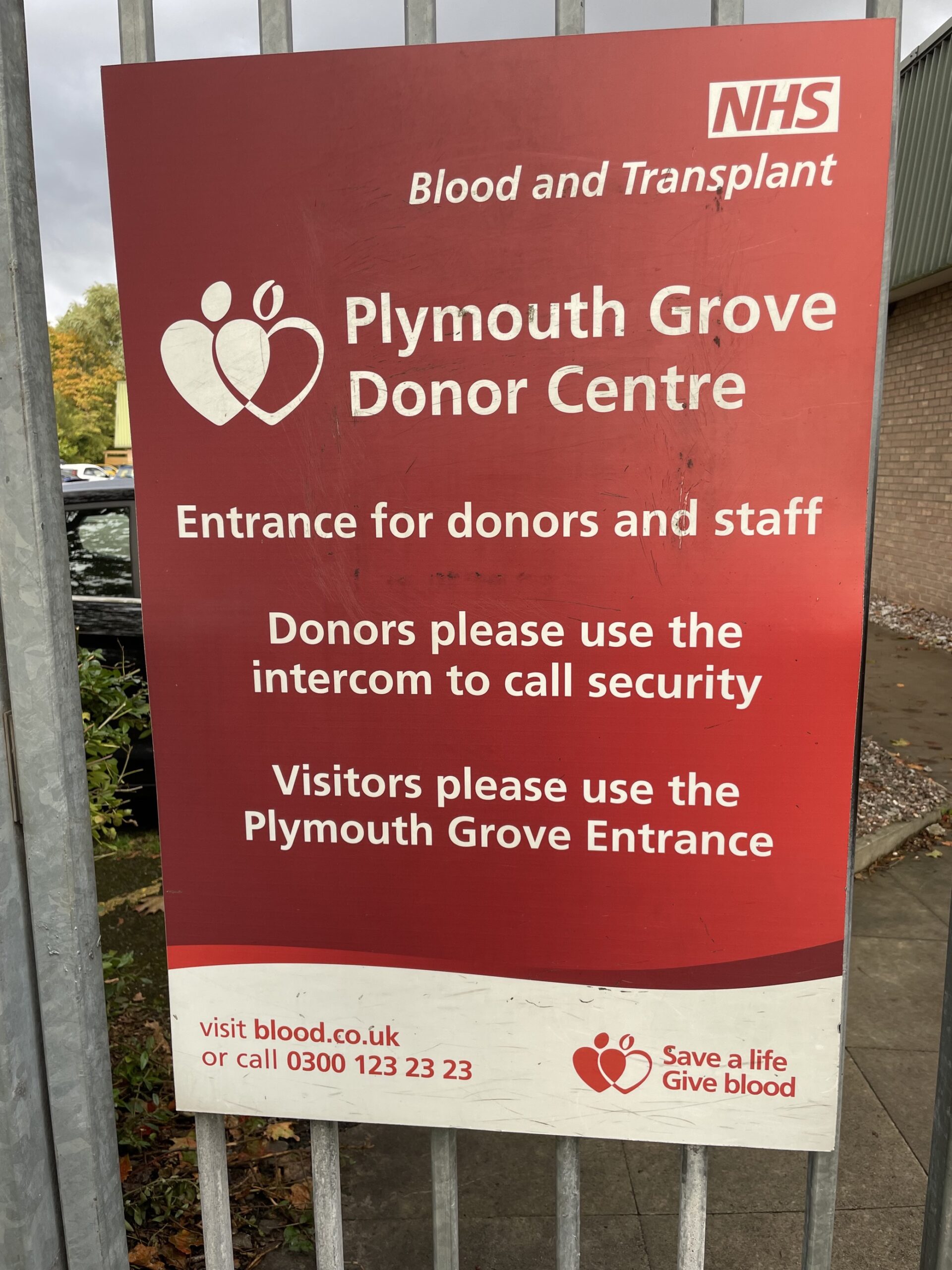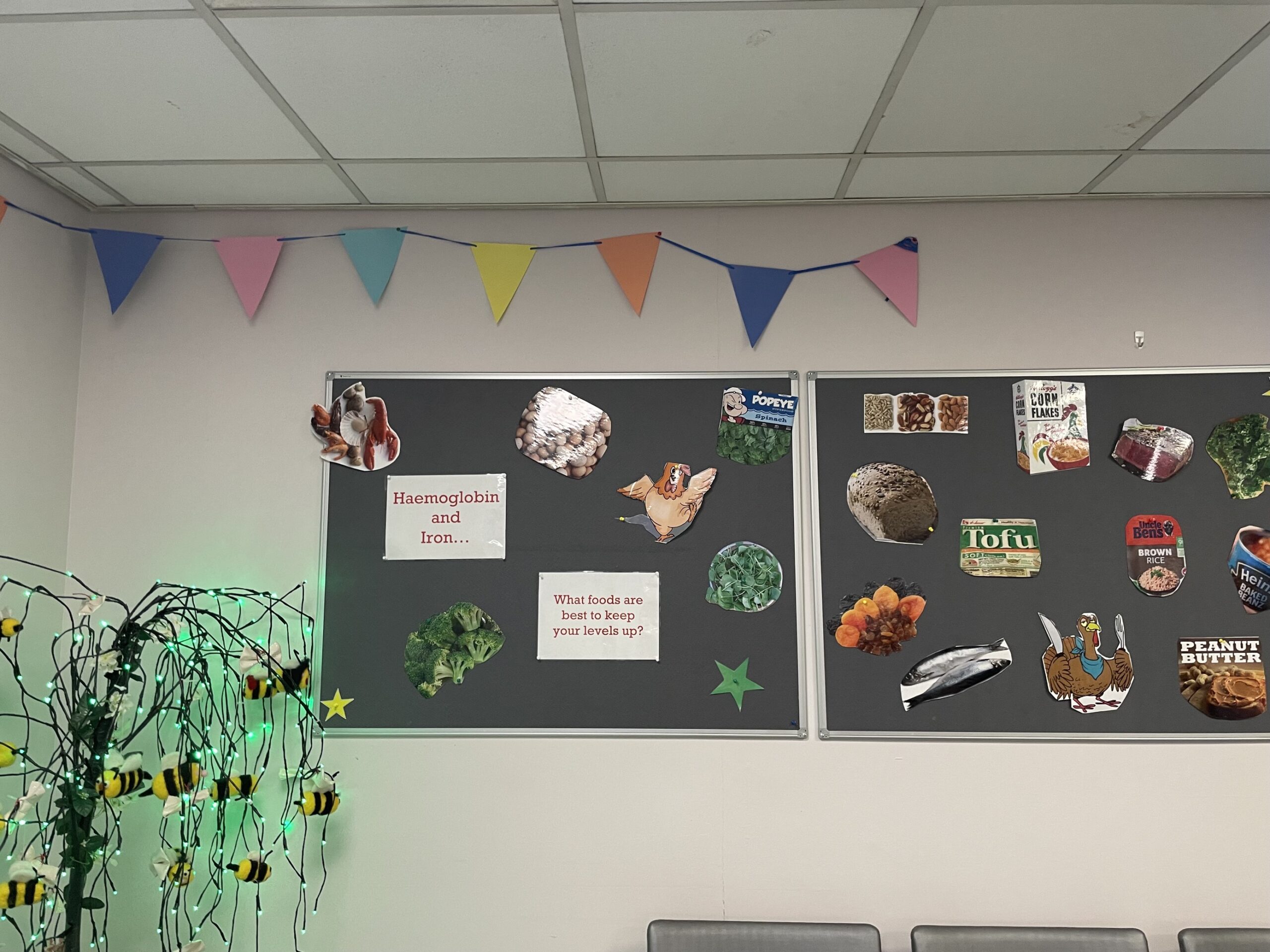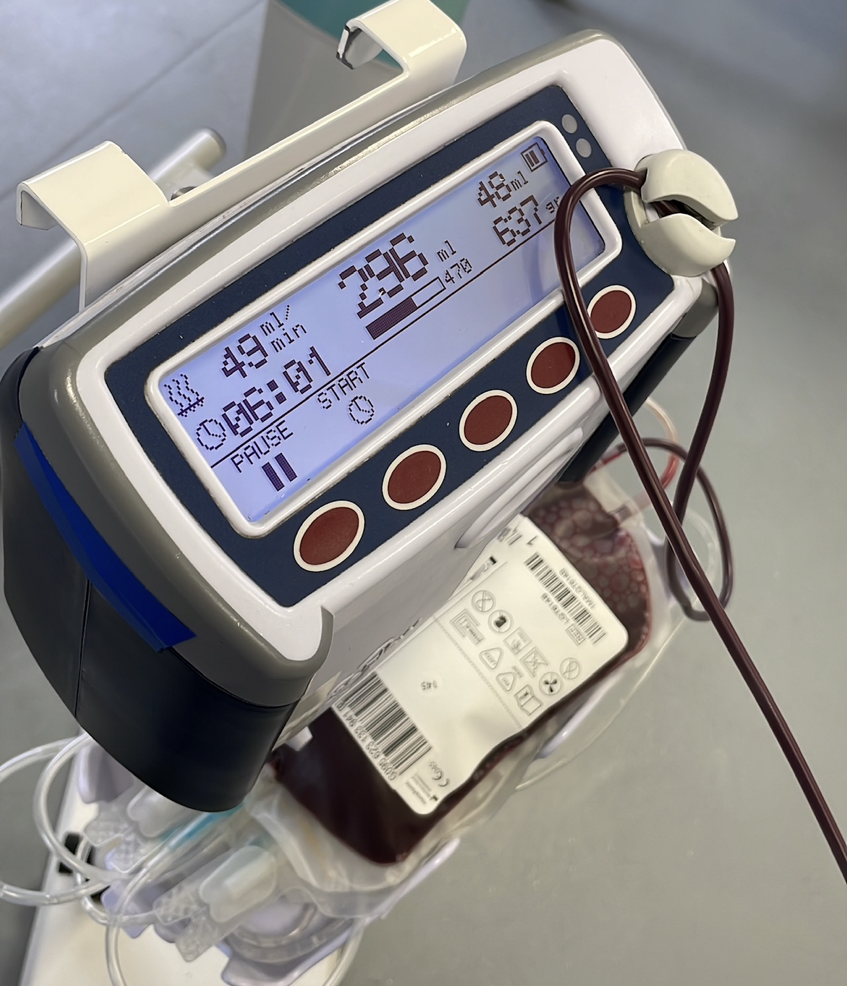Why you should give blood

As students, because most of us are young and reasonably healthy, our blood is some of the most sought after. In Manchester it’s even better for us, as we are ideally situated with the hospital being just by the university. I nipped in to donate after finishing my lectures for the day, so it can be convenient if scheduled correctly.

A few reasons to donate
The NHS currently requires 4,300 blood donations per day to meet the needs of its hospitals, and to do this they will require over 140,000 people to donate for the first time this year. Particularly in demand are donors of Black heritage, as Black people are more likely to develop sickle cell disease (you might remember this from GCSE biology). In the UK there are between 13,000-15,000 people with the condition. Another group in high demand for blood donations are people aged 17-35, to ensure that there is enough blood for the future.
As a frequent blood donor (this is my fourth donation since I turned 18) I decided to take you, the reader, along with me to my donation appointment.
Donating blood 101
The first step: I walk into the waiting room where a receptionist gives me a form to fill out. This includes any factors that might affect my ability to donate, and any factors which might need to be discussed with a doctor. I am also given a cup of water or squash to chug to ensure I am properly hydrated.
They then take me into a waiting room where I talk to a doctor. We chat about the form I just submitted and I give details about my previous donations. Having decided that I am okay to donate they test my iron levels. Full disclosure, this involves a quick skin prick test, but it is no worse that stepping on a Lego for a split second – painful but fleeting.

I am sent to go and wait on some chairs just outside of the donation room. I can see people currently donating, and I’m getting myself mentally ready. As someone who is not keen on needles, I often feel nerves as I go to donate, but I see this as a personal challenge that I am working to overcome rather than an explicitly bad thing.
The waiting is up and I am next led to a chair to lie down. I am given a roll of plastic, not unlike the stuff at the centre of a roll of tape – this is for me to squeeze during donation to ensure I have good blood flow. I manhandle it a bit too much at the beginning of the appointment when they are putting in the needle, so they give me a new one.
When having the needle put in, I sit and say my mantra. This is not a mantra that I use everyday, but it tends to be drawn out of me at this point, and it usually elicits a laugh from the nurse. “I am a strong independent woman and I can do this. I am brave, I am strong, and I can do this.” Just like that, the needle is in and I have begun.

There is a metre which measures the amount of blood that I have to give. The one stipulation is that I have to donate 470ml within 30 minutes, or it will not be used for donation to a live patient. If it takes longer than 30 minutes this may mean your blood is too viscous and you’re not hydrated enough. It will still be used for scientific testing, however, and will still contribute to research.
A reward for your donation
They remove the needle when I have given the desired amount, and I am sent to a table to eat biscuits and drink squash: the highlight of the always-peckish student’s day! I stay for about ten minutes, and then I am allowed to leave. And so I do, feeling smug and slightly morally holier than thou. Another benefit of donating is that you are rewarded the more you do it; for example, I am one donation off receiving the bronze medal for donation. If you’re the kind of person that is motivated by reward, this is definitely a benefit!
All of this is to say, giving blood is a reasonably easy thing that we can do as students. You can find out if you are eligible to donate with a few clicks on the blood donation website, and you can book an appointment even more easily. I would recommend it as something to do! Hopefully this article has provided you with a little motivation to donate, and helped to demystify the process.







